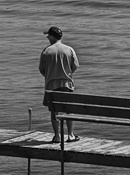All Nonfiction
- Bullying
- Books
- Academic
- Author Interviews
- Celebrity interviews
- College Articles
- College Essays
- Educator of the Year
- Heroes
- Interviews
- Memoir
- Personal Experience
- Sports
- Travel & Culture
All Opinions
- Bullying
- Current Events / Politics
- Discrimination
- Drugs / Alcohol / Smoking
- Entertainment / Celebrities
- Environment
- Love / Relationships
- Movies / Music / TV
- Pop Culture / Trends
- School / College
- Social Issues / Civics
- Spirituality / Religion
- Sports / Hobbies
All Hot Topics
- Bullying
- Community Service
- Environment
- Health
- Letters to the Editor
- Pride & Prejudice
- What Matters
- Back
Summer Guide
- Program Links
- Program Reviews
- Back
College Guide
- College Links
- College Reviews
- College Essays
- College Articles
- Back
Reflecion on Unbroken
During the COVID outbreak, my teacher recommended me 'Unbroken', a non-fiction biography about the thrilling and suffering experience of an Italian-American pilot, Louis Zamperini, in WWII.
The author is Laura Hillenbrand. In the appendix, she spent 7 years writing the biography, including interviewing others and collecting valid information. On the surface, this book is about the cruelty of wars, but it is the praise to the unyielding spirit.
I spent several weeks to complete this book and is generally about the biography of Louis Zamperini. After finishing it, I found that the whole content can be divided into three parts: Before the war, during the war, and after the war. The first part is about the childhood and teenage of Louis. He was a naughty boy until his elder brother, Pete, forced him to practice the running skills. After a lot of coincidences and events, he became the Olympic champion. The second is about Louis joining the navy and becoming a pilot. After a plane crash, he was captured by the Japanese and was treated inhumanly in the POW camp until the war ended. The third part is about things that happened several years after the war. Louis was vexed by his memories, after some great decisions, he got rid of those horrible memories eventually.
In this book, two parts surprised me the most. One is Louis's experience in the Omori POW camp, the other is the process of how Louis gets rid of the awful experience after the war. They are an exterior contradiction but are the same in the interior, which expresses the unbroken spirit. When Louis was in the Omori camp, he was tortured by a Japanese officer, Watanabe, who was often called "The Bird". He maltreated all the prisoners in the camp, especially Louis. The Bird used to punch Louis 220 times, but Louis did not yield to his barbarous act and stood still till the last punch. After the war, he was continuously vexed by those memories, he even wanted to take a trip to Japan and murder the Bird to alleviate the mental pain. At last, he tried to overcome those difficulties by converting himself into a Christian. Belief can be a perfect remedy for mentally wounded veterans like him. Many soldiers survived the war, but they cannot escape from those memories. Louis, however, made it. At least in this biography, he got rid of them successfully, proved his spirit unbroken. He not only endured the pain but also forgot them. It seems like this, but does the word "unbroken" really mean abandon the past and devote oneself to the religion? From my perspective, only endless struggling can reveal the steadfast and unbroken spirit of a noble person. A truly unbreakable person should accept and confront the fear from the past, not to paralyze himself in the illusory sense of faith.
I highly recommend this book to anyone who has not read it yet. I have two reasons and I am sure they can persuade you to buy it. On one hand, it shows the cruelty of the war by demonstrating the perspective of one person, but not to show it in a macro way. It is more vivid to describe the whole war from a single person. The figures sometimes are not as catching as the scene. On the other hand, it is a story about resilience and unyielding, which are two spirits that make us strong. There are always difficulties and obstacles in our life. One cannot give up and do nothing. What the book wants to express is to keep struggling no matter how good or bad the current situation is, because our life is connected by countless battlefields.

Similar Articles
JOIN THE DISCUSSION
This article has 0 comments.
